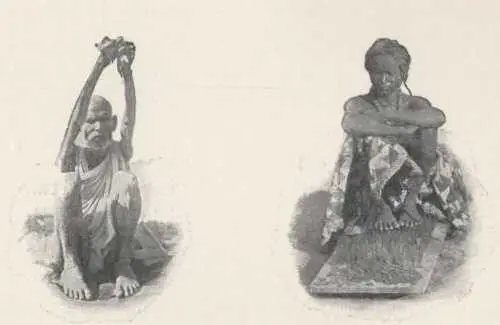Mark Twain - Following the Equator
Здесь есть возможность читать онлайн «Mark Twain - Following the Equator» весь текст электронной книги совершенно бесплатно (целиком полную версию без сокращений). В некоторых случаях можно слушать аудио, скачать через торрент в формате fb2 и присутствует краткое содержание. Год выпуска: 2004, Жанр: Классическая проза, Юмористическая проза, на английском языке. Описание произведения, (предисловие) а так же отзывы посетителей доступны на портале библиотеки ЛибКат.
- Название:Following the Equator
- Автор:
- Жанр:
- Год:2004
- ISBN:нет данных
- Рейтинг книги:3 / 5. Голосов: 1
-
Избранное:Добавить в избранное
- Отзывы:
-
Ваша оценка:
- 60
- 1
- 2
- 3
- 4
- 5
Following the Equator: краткое содержание, описание и аннотация
Предлагаем к чтению аннотацию, описание, краткое содержание или предисловие (зависит от того, что написал сам автор книги «Following the Equator»). Если вы не нашли необходимую информацию о книге — напишите в комментариях, мы постараемся отыскать её.
Following the Equator — читать онлайн бесплатно полную книгу (весь текст) целиком
Ниже представлен текст книги, разбитый по страницам. Система сохранения места последней прочитанной страницы, позволяет с удобством читать онлайн бесплатно книгу «Following the Equator», без необходимости каждый раз заново искать на чём Вы остановились. Поставьте закладку, и сможете в любой момент перейти на страницу, на которой закончили чтение.
Интервал:
Закладка:

Then we struck into the hot plain, and found the roads crowded with pilgrims of both sexes, for one of the great religious fairs of India was being held, just beyond the Fort, at the junction of the sacred rivers, the Ganges and the Jumna. Three sacred rivers, I should have said, for there is a subterranean one. Nobody has seen it, but that doesn't signify. The fact that it is there is enough. These pilgrims had come from all over India; some of them had been months on the way, plodding patiently along in the heat and dust, worn, poor, hungry, but supported and sustained by an unwavering faith and belief; they were supremely happy and content, now; their full and sufficient reward was at hand; they were going to be cleansed from every vestige of sin and corruption by these holy waters which make utterly pure whatsoever thing they touch, even the dead and rotten. It is wonderful, the power of a faith like that, that can make multitudes upon multitudes of the old and weak and the young and frail enter without hesitation or complaint upon such incredible journeys and endure the resultant miseries without repining. It is done in love, or it is done in fear; I do not know which it is. No matter what the impulse is, the act born of it is beyond imagination marvelous to our kind of people, the cold whites. There are choice great natures among us that could exhibit the equivalent of this prodigious self-sacrifice, but the rest of us know that we should not be equal to anything approaching it. Still, we all talk self-sacrifice, and this makes me hope that we are large enough to honor it in the Hindoo.
Two millions of natives arrive at this fair every year. How many start, and die on the road, from age and fatigue and disease and scanty nourishment, and how many die on the return, from the same causes, no one knows; but the tale is great, one may say enormous. Every twelfth year is held to be a year of peculiar grace; a greatly augmented volume of pilgrims results then. The twelfth year has held this distinction since the remotest times, it is said. It is said also that there is to be but one more twelfth year—for the Ganges. After that, that holiest of all sacred rivers will cease to be holy, and will be abandoned by the pilgrim for many centuries; how many, the wise men have not stated. At the end of that interval it will become holy again. Meantime, the data will be arranged by those people who have charge of all such matters, the great chief Brahmins. It will be like shutting down a mint. At a first glance it looks most unbrahminically uncommercial, but I am not disturbed, being soothed and tranquilized by their reputation. "Brer fox he lay low," as Uncle Remus says; and at the judicious time he will spring something on the Indian public which will show that he was not financially asleep when he took the Ganges out of the market.
Great numbers of the natives along the roads were bringing away holy water from the rivers. They would carry it far and wide in India and sell it. Tavernier, the French traveler (17th century), notes that Ganges water is often given at weddings, "each guest receiving a cup or two, according to the liberality of the host; sometimes 2,000 or 3,000 rupees' worth of it is consumed at a wedding."
The Fort is a huge old structure, and has had a large experience in religions. In its great court stands a monolith which was placed there more than 2,000 years ago to preach (Budhism) by its pious inscription; the Fort was built three centuries ago by a Mohammedan Emperor—a resanctification of the place in the interest of that religion. There is a Hindoo temple, too, with subterranean ramifications stocked with shrines and idols; and now the Fort belongs to the English, it contains a Christian Church. Insured in all the companies.
From the lofty ramparts one has a fine view of the sacred rivers. They join at that point—the pale blue Jumna, apparently clean and clear, and the muddy Ganges, dull yellow and not clean. On a long curved spit between the rivers, towns of tents were visible, with a multitude of fluttering pennons, and a mighty swarm of pilgrims. It was a troublesome place to get down to, and not a quiet place when you arrived; but it was interesting. There was a world of activity and turmoil and noise, partly religious, partly commercial; for the Mohammedans were there to curse and sell, and the Hindoos to buy and pray. It is a fair as well as a religious festival. Crowds were bathing, praying, and drinking the purifying waters, and many sick pilgrims had come long journeys in palanquins to be healed of their maladies by a bath; or if that might not be, then to die on the blessed banks and so make sure of heaven. There were fakeers in plenty, with their bodies dusted over with ashes and their long hair caked together with cow-dung; for the cow is holy and so is the rest of it; so holy that the good Hindoo peasant frescoes the walls of his hut with this refuse, and also constructs ornamental figures out of it for the gracing of his dirt floor. There were seated families, fearfully and wonderfully painted, who by attitude and grouping represented the families of certain great gods. There was a holy man who sat naked by the day and by the week on a cluster of iron spikes, and did not seem to mind it; and another holy man, who stood all day holding his withered arms motionless aloft, and was said to have been doing it for years. All of these performers have a cloth on the ground beside them for the reception of contributions, and even the poorest of the people give a trifle and hope that the sacrifice will be blessed to him. At last came a procession of naked holy people marching by and chanting, and I wrenched myself away.

CHAPTER L.
The man who is ostentatious of his modesty is twin to the statue that wears a fig-leaf.
—Pudd'nhead Wilson's New Calendar.
On the Road to Benares—Dust and Waiting—The Bejeweled Crowd—A Native Prince and his Guard—Zenana Lady—The Extremes of Fashion—The Hotel at Benares—An Annex a Mile Away—Doors in India—The Peepul Tree—Warning against Cold Baths—A Strange Fruit—Description of Benares—The Beginning of Creation—Pilgrims to Benares—A Priest with a Good Business Stand—Protestant Missionary—The Trinity Brahma, Shiva, and Vishnu—Religion the Business at Benares
The journey to Benares was all in daylight, and occupied but a few hours. It was admirably dusty. The dust settled upon you in a thick ashy layer and turned you into a fakeer, with nothing lacking to the role but the cow manure and the sense of holiness. There was a change of cars about mid-afternoon at Moghul-serai—if that was the name—and a wait of two hours there for the Benares train. We could have found a carriage and driven to the sacred city, but we should have lost the wait. In other countries a long wait at a station is a dull thing and tedious, but one has no right to have that feeling in India. You have the monster crowd of bejeweled natives, the stir, the bustle, the confusion, the shifting splendors of the costumes—dear me, the delight of it, the charm of it are beyond speech. The two-hour wait was over too soon. Among other satisfying things to look at was a minor native prince from the backwoods somewhere, with his guard of honor, a ragged but wonderfully gaudy gang of fifty dark barbarians armed with rusty flint-lock muskets. The general show came so near to exhausting variety that one would have said that no addition to it could be conspicuous, but when this Falstaff and his motleys marched through it one saw that that seeming impossibility had happened.
Читать дальшеИнтервал:
Закладка:
Похожие книги на «Following the Equator»
Представляем Вашему вниманию похожие книги на «Following the Equator» списком для выбора. Мы отобрали схожую по названию и смыслу литературу в надежде предоставить читателям больше вариантов отыскать новые, интересные, ещё непрочитанные произведения.
Обсуждение, отзывы о книге «Following the Equator» и просто собственные мнения читателей. Оставьте ваши комментарии, напишите, что Вы думаете о произведении, его смысле или главных героях. Укажите что конкретно понравилось, а что нет, и почему Вы так считаете.











